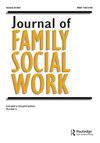前言
IF 0.7
Q3 SOCIAL WORK
引用次数: 0
摘要
日常电力系统正变得越来越复杂。电力系统对分布式能源的依赖,包括可再生能源和非常规能源,使得系统的控制变得十分复杂。随着现代电力电子设备的使用,复杂的系统控制也变得更加高效、人性化和可靠。但是,这些装置的使用使电力系统陷入了严重的质量问题。由于复杂的电子产品在生活的各个领域的使用越来越多,为了它们的良好寿命,在目前放松管制的竞争激烈的电力市场中,对优质电力的要求已成为消费者的主要标准。因此,电能质量已成为公用事业公司、最终用户以及制造商关注的问题。这本书的目的是为研究生,研究生和研究人员以及在相关领域的专业人士。这本书是从作者在印度加尔各答大学应用物理系电气工程学士和硕士课程中所进行的研究和作者所提供的课程内容演变而来的。书中提供了大量的参考文献,其中大部分是期刊和会议论文以及国家和国际标准。本书的内容一方面侧重于不同的电能质量问题、它们的来源和影响以及不同的相关标准,另一方面侧重于不同电能质量参数的测量技术。根据模拟和室内实验结果,讨论了不同方法的优点和局限性。最后,增加了一章,介绍了电力系统中谐波产生的概念及其组成部分。本书的主要特点可以突出如下:本文章由计算机程序翻译,如有差异,请以英文原文为准。
Preface
Day-by-day electric power systems are becoming more and more complex. The dependence of power system on distributed energy sources, including renewable and non-conventional, has made the control of the system sufficiently intricate. With the use of modern power electronic devices, now-a-days, the complexities in system contrology are made more efficient, user-friendly and reliable also. But the usage of these devices has pushed a power system in serious quality problem. Since the use of sophisticated electronic gadgets has increased in every sphere of life, for their good longevity, requirement of quality power has become a predominant criterion to the consumers in the present deregulated competitive power market. Therefore, electric power quality has become the concern of utilities, end users as well as manufacturers. This book is intended for graduate, postgraduate and researchers as well as for professionals in the related fields. This book has evolved from the researches carried out by the authors and the contents of the courses given by the authors at University of Calcutta, Department of Applied Physics, India in the Bachelor and Master’s courses in Electrical Engineering. A large number of references are given in the book most of which are journal and conference papers and national and international standards. The contents of the book focuses, on one hand, on different power quality issues, their sources and effects and different related standards, and on the other hand, measurement techniques for different power quality parameters. Advantages and limitations of different methods are discussed along simulated and laboratory experiment results. At the end, a chapter has been added which deals a concept of generation of harmonics in a power system and its components. The key features of the book can be highlighted as follows:
求助全文
通过发布文献求助,成功后即可免费获取论文全文。
去求助
来源期刊

Journal of Family Social Work
SOCIAL WORK-
CiteScore
2.10
自引率
0.00%
发文量
4
期刊介绍:
Each issue of the Journal of Family Social Work contains peer reviewed research articles, conceptual and practice articles, creative works, letters to the editor, and book reviews devoted to innovative family theory and practice subjects. In celebrating social workers" tradition of working with couples and families in their life context, the Journal of Family Social Work features articles which advance the capacity of practitioners to integrate research, theory building, and practice wisdom into their services to families. It is a journal of policy, clinical practice, and research directed to the needs of social workers working with couples and families.
 求助内容:
求助内容: 应助结果提醒方式:
应助结果提醒方式:


